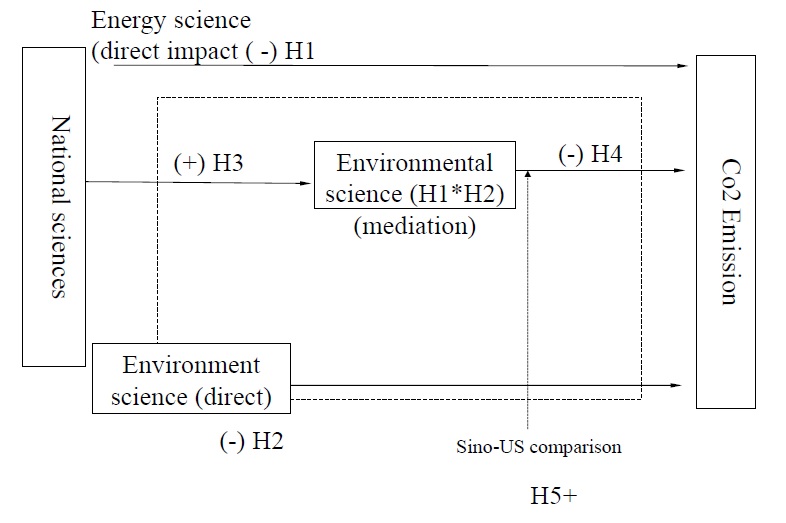The Science-Sustainability poses an interdisciplinary paradox. On the one hand, the science for sustainability has increased in OECD economies in and in China as well as in the US in particular; on the other hand; the sustainability situation has worsened (Co2 emission has risen). On the face value, the adverse correlation shows a paradox. However, without explicating the science-sustainability relationship, it leads to a premature conclusion. In this study, we have drawn on three concrete questions for concrete answers. First, whether and how interdisciplinary sciences—energy science and environmental science—contribute to the sustainability. Second, whether and how the Sino-US inter-institutional analysis varies in the science-sustainability paradox. The empirical analysis from a panel data in the interdisciplinary and inter-institutional context show mixed patterns in three ways. First, the increase in the environmental science shows an improvement in the sustainability; the energy science shows a decline in the sustainability. Second, the Chinese environmental science has a comparative advantage to American environment science for the sustainability development, and the Chinese energy science has a comparative disadvantage to the US in the sustainability development. Third, the environmental science mediates the energy science in the science-sustainability relationships. Standing alone, the increase in the energy science harms sustainability; mediated by environmental science, it benefits sustainability. The study explains the adverse role of energy science in Jevons Paradox. The study also offers some policy paths for further research how capitalisms differently innovate, form strategies, and implement the practice.

